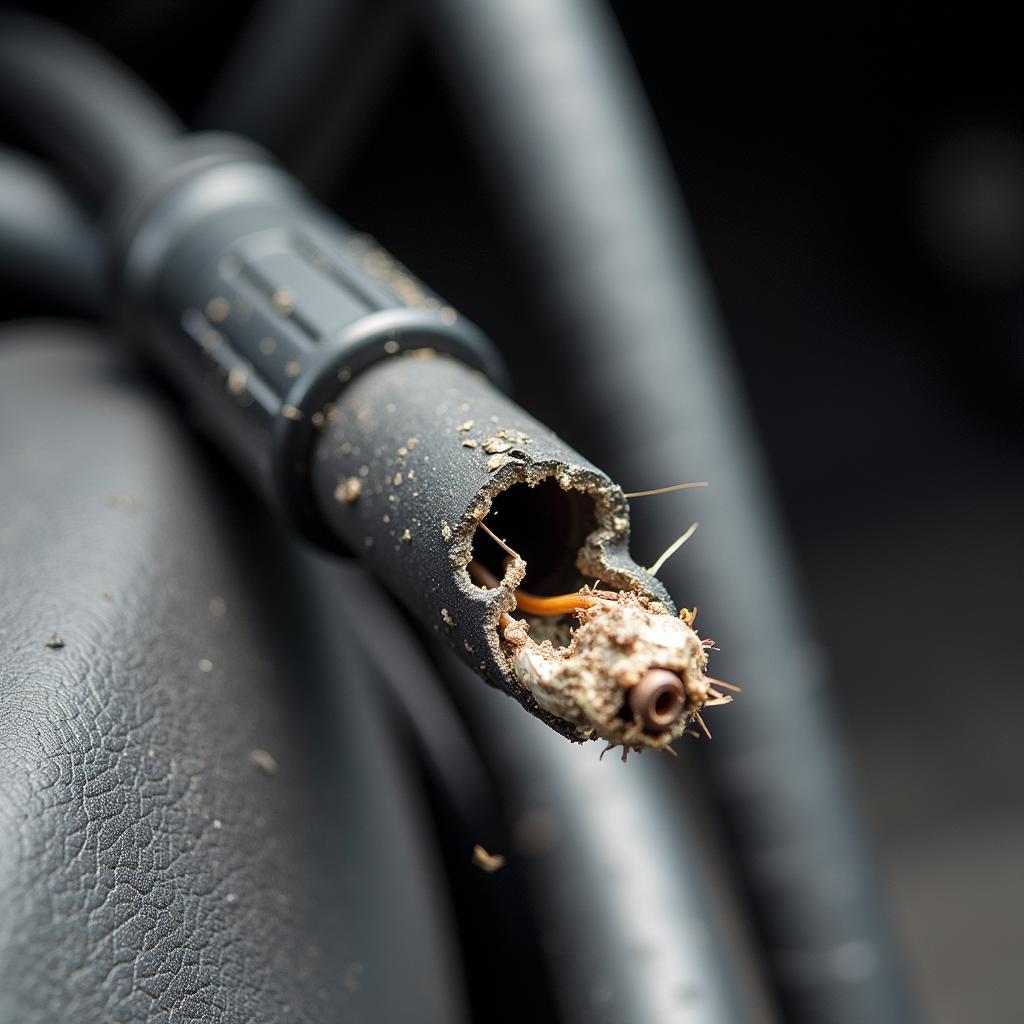Getting a fix-it ticket is never fun, but it can be even more confusing when you’re driving someone else’s car. Who’s responsible for the ticket and the repairs? Can this impact your own driving record and insurance? Don’t worry, we’re here to breakdown the process and guide you through the steps of dealing with a fix-it ticket when you’re behind the wheel of a borrowed vehicle.
Understanding Fix-It Tickets and Their Implications
A fix-it ticket, also known as a “correctable violation,” is issued for a problem with the vehicle itself, rather than the driver’s actions. This could be anything from a broken taillight to tinted windows that exceed the legal limit.
Here’s what makes a fix-it ticket different:
- Focus on the Vehicle: The ticket is issued to the vehicle, not the driver. However, as the driver, you are responsible for ensuring the issue is fixed.
- Proof of Correction: You must correct the violation and provide proof to the authorities to avoid further penalties. This usually involves getting a signed document from a certified mechanic.
- Potential for Dismissal: Once you’ve proven the violation is corrected, the ticket is typically dismissed, and you won’t face fines or points on your driving record.
Who is Responsible When Driving Someone Else’s Car?
The responsibility for a fix-it ticket generally falls on the registered owner of the vehicle, even if someone else was driving at the time. This means:
- Owner’s Responsibility for Repairs: The vehicle owner is usually responsible for the cost of repairs, regardless of who was driving when the ticket was issued.
- Potential Impact on Owner’s Record: If the ticket is not addressed and the fine goes unpaid, it could negatively impact the owner’s driving record and potentially increase their insurance premiums.
Important Note: It’s always a good idea to have a conversation with the vehicle owner as soon as possible after receiving a fix-it ticket. Explain the situation and discuss how you’ll handle the repairs and proof of correction.
Steps to Take When You Receive a Fix-It Ticket
If you find yourself with a fix-it ticket while driving someone else’s car, follow these steps:
- Inspect the Ticket Carefully: Make sure you understand the specific violation(s) listed on the ticket.
- Contact the Vehicle Owner: Inform the owner of the car about the ticket immediately and discuss responsibility for the repairs.
- Get the Vehicle Repaired: Take the car to a licensed mechanic to address the violation. Be sure to obtain a written receipt and any necessary documentation proving the repair.
- Provide Proof of Correction: Follow the instructions on the ticket to submit your proof of correction to the relevant authorities. This might involve mailing in documentation or appearing in person at a court or police station.
- Keep Records: Keep copies of the ticket, repair receipts, and any correspondence with the authorities for your records.
Tips to Avoid Future Fix-It Tickets
While you can’t prevent every potential vehicle issue, proactive maintenance can significantly reduce your risk of receiving a fix-it ticket.
- Regular Vehicle Inspections: Regularly inspect the vehicle you are driving, whether you own it or not, for potential problems. This includes checking headlights, taillights, brake lights, turn signals, tire pressure, and window tint.
- Address Minor Issues Promptly: Don’t ignore minor issues. A burnt-out taillight might seem like a small problem, but it’s an easy target for a fix-it ticket.
- Communicate with the Vehicle Owner: If you are borrowing someone’s car and notice a potential problem, let them know so they can address it.
Conclusion
Dealing with a fix-it ticket when driving someone else’s car can seem complicated, but understanding your responsibilities and taking prompt action can make the process much smoother. Remember, open communication with the vehicle owner is key. By working together and addressing the violation swiftly, you can avoid further complications and ensure everyone is back on the road safely and legally.
Need more assistance with a fix-it ticket situation? Don’t hesitate to reach out to the automotive experts at AutoTipPro for guidance. Call us at +1 (641) 206-8880 or visit our office at 500 N St Mary’s St, San Antonio, TX 78205, United States.
FAQs about Fix-It Tickets:
-
Can I get points on my license for a fix-it ticket?
- Typically, no. Once you provide proof of correction, a fix-it ticket usually doesn’t result in points added to your driving record.
-
What happens if I don’t fix the problem by the deadline?
- Failing to address the violation by the deadline can lead to additional fines, suspension of vehicle registration, or even legal action.
-
Do I need to go to court for a fix-it ticket?
- This varies depending on the jurisdiction and the specific violation. The ticket will usually provide instructions on how and where to submit proof of correction.
-
Can I contest a fix-it ticket?
- Yes, you have the right to contest the ticket if you believe it was issued in error. You will need to follow the instructions on the ticket to challenge the violation.
-
What if the car is a rental?
- Contact the rental car company immediately. They will guide you through the process, which may involve providing them with the ticket information and proof of correction.







Leave a Reply